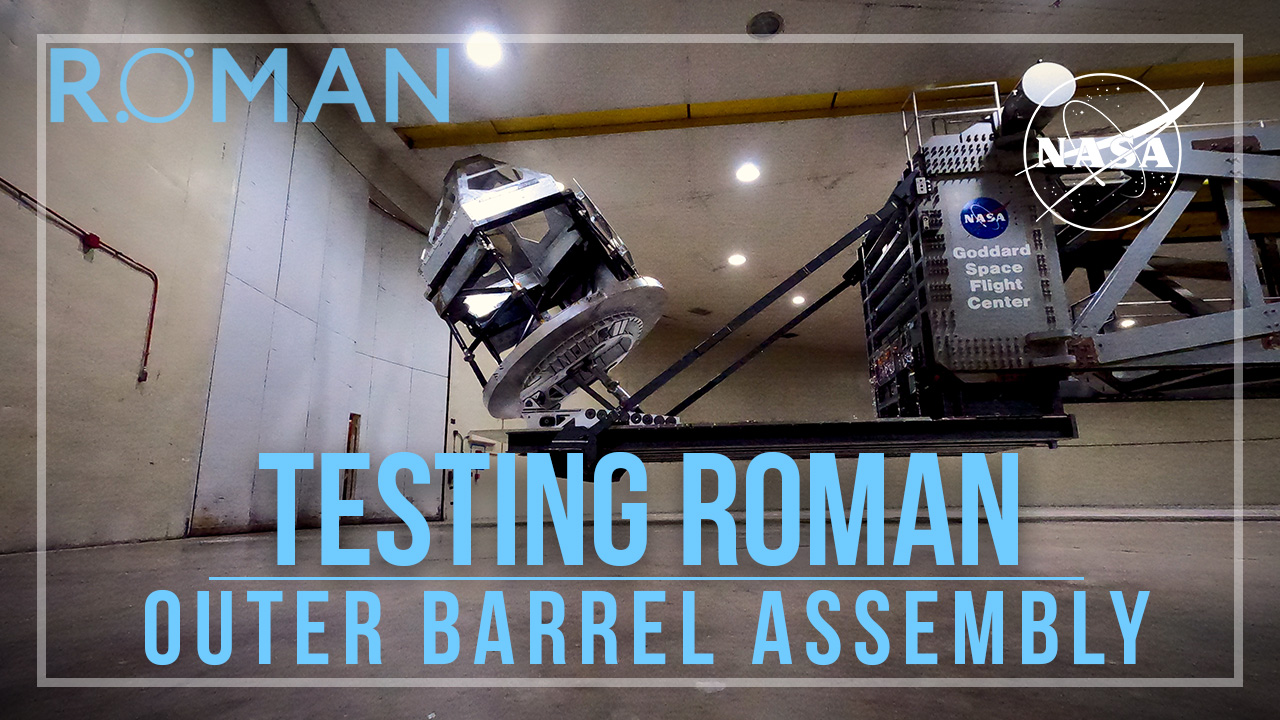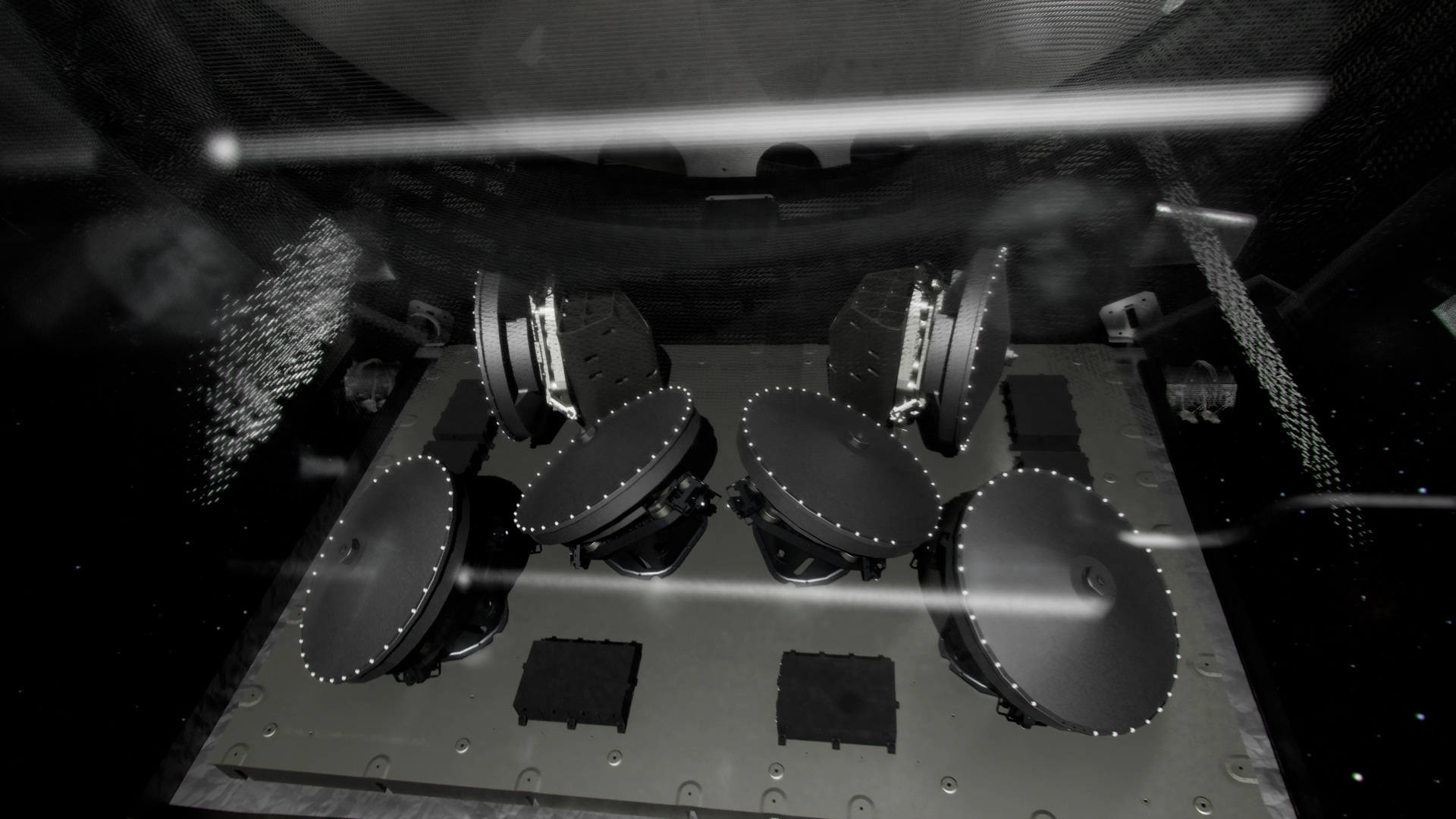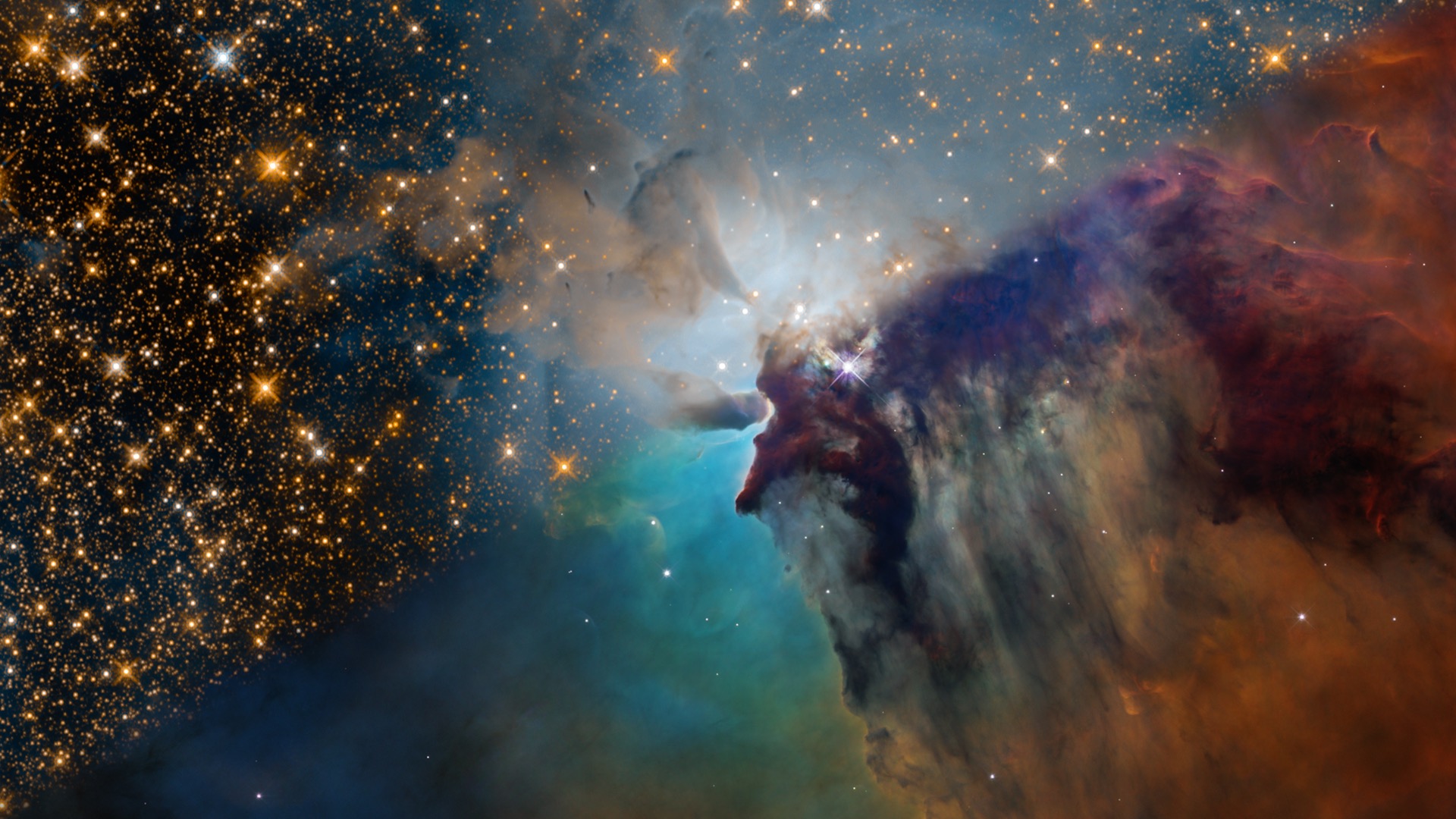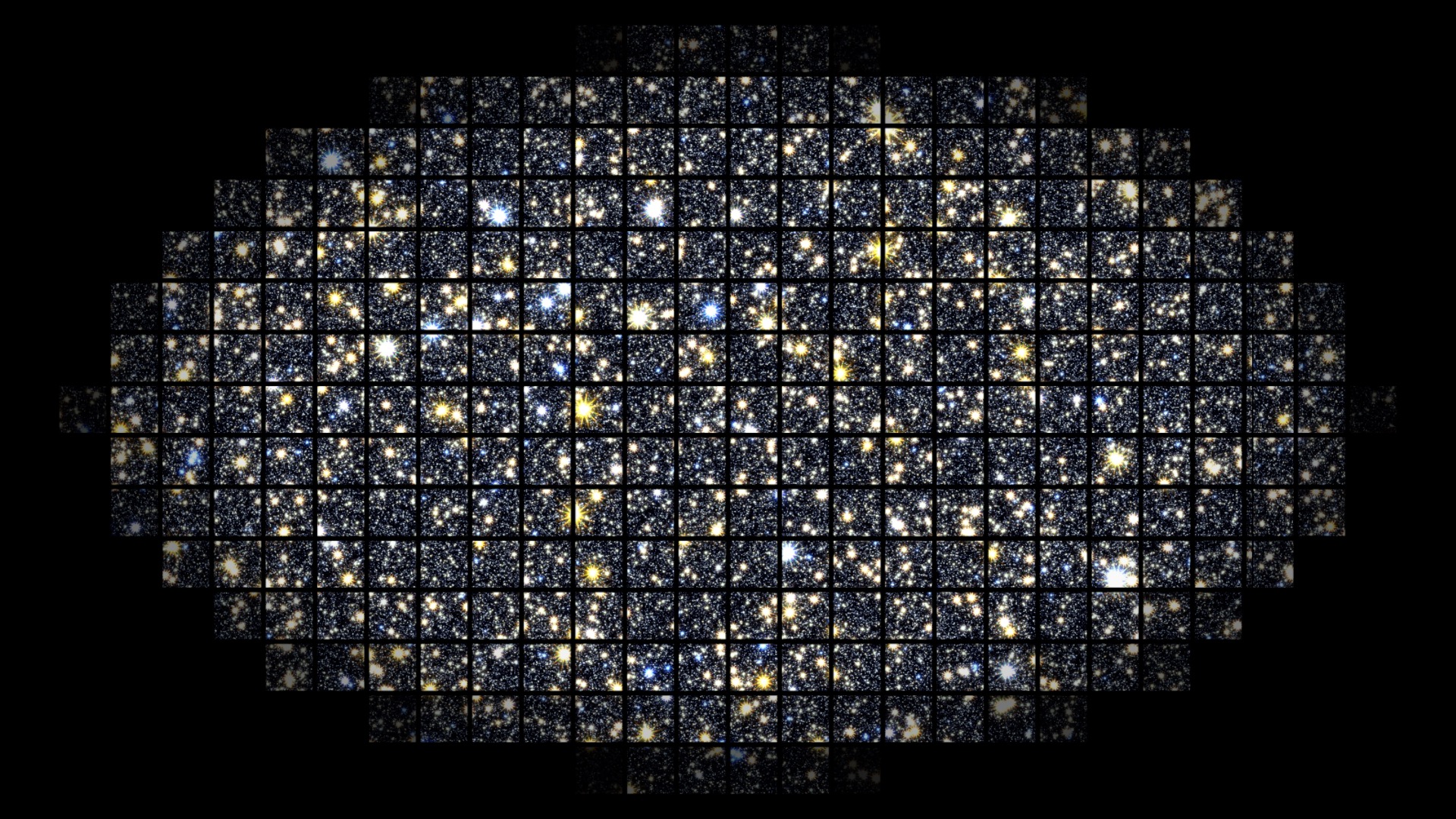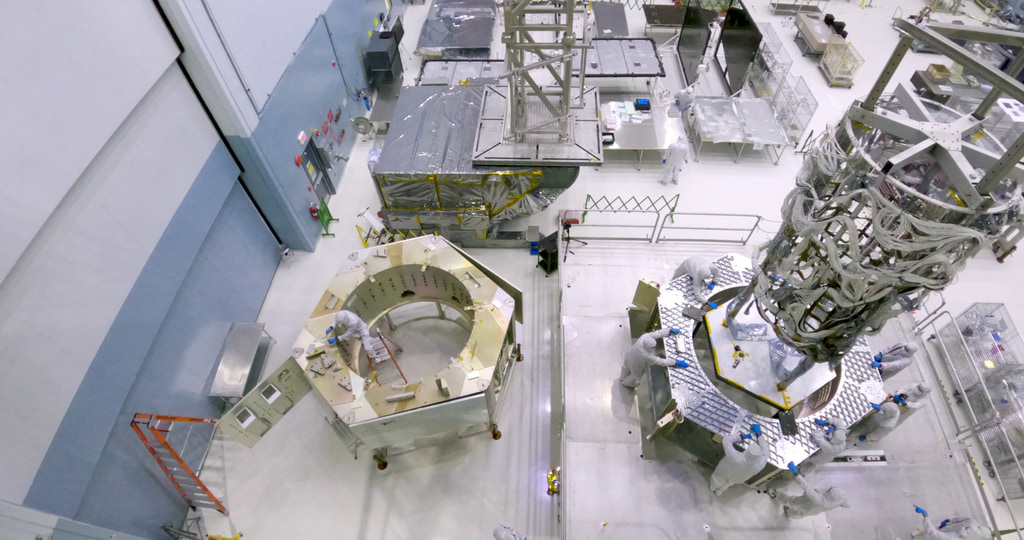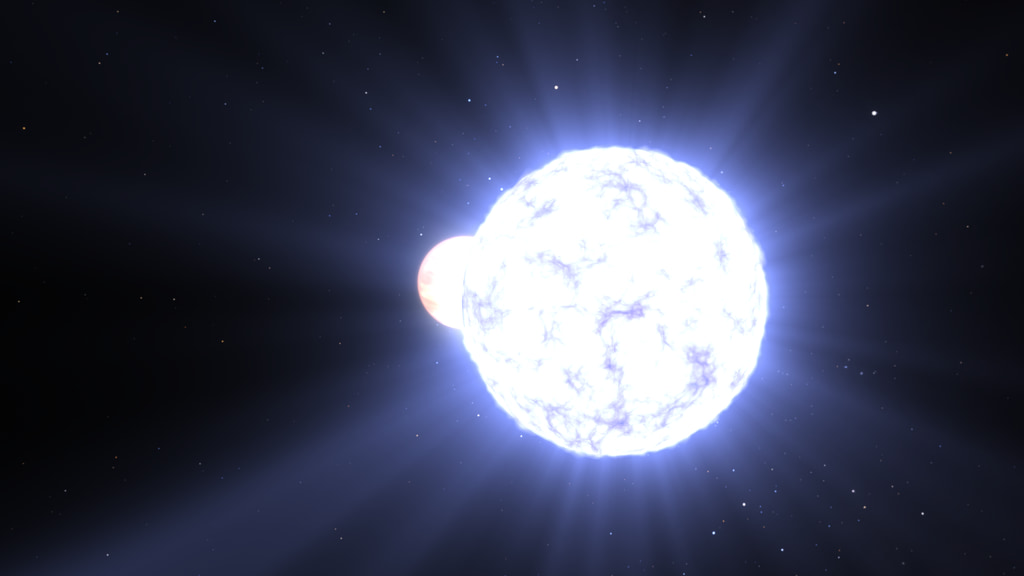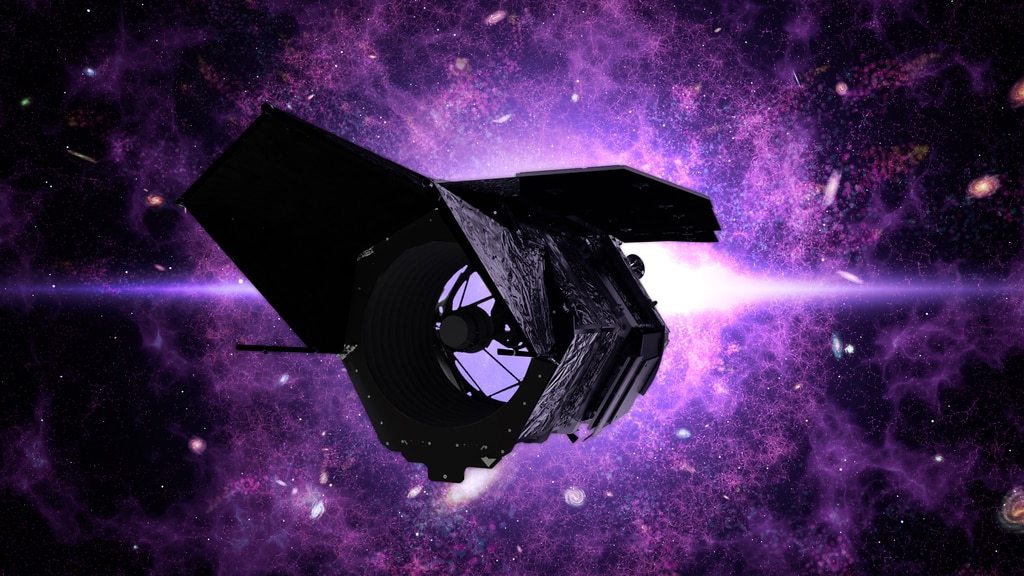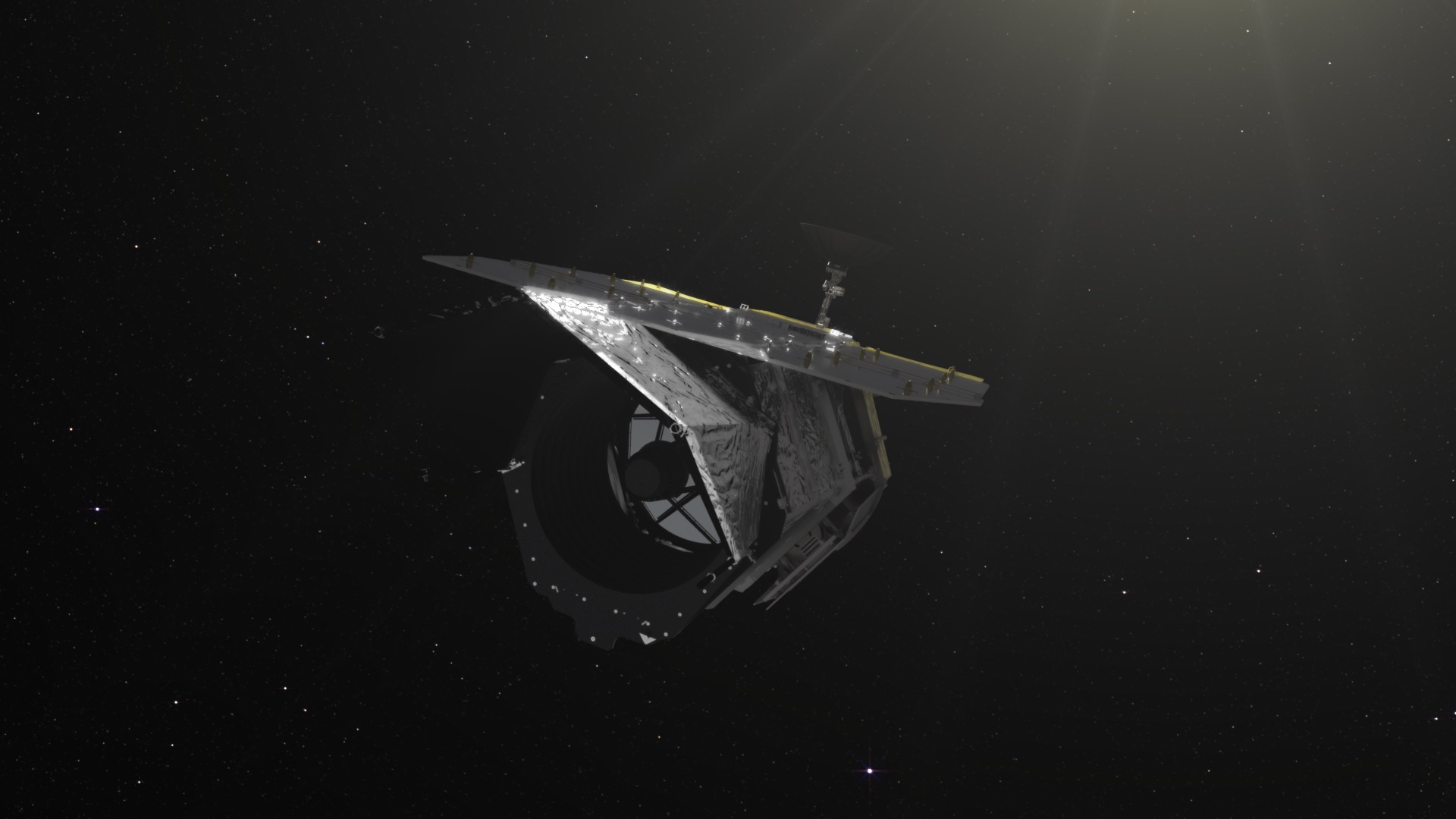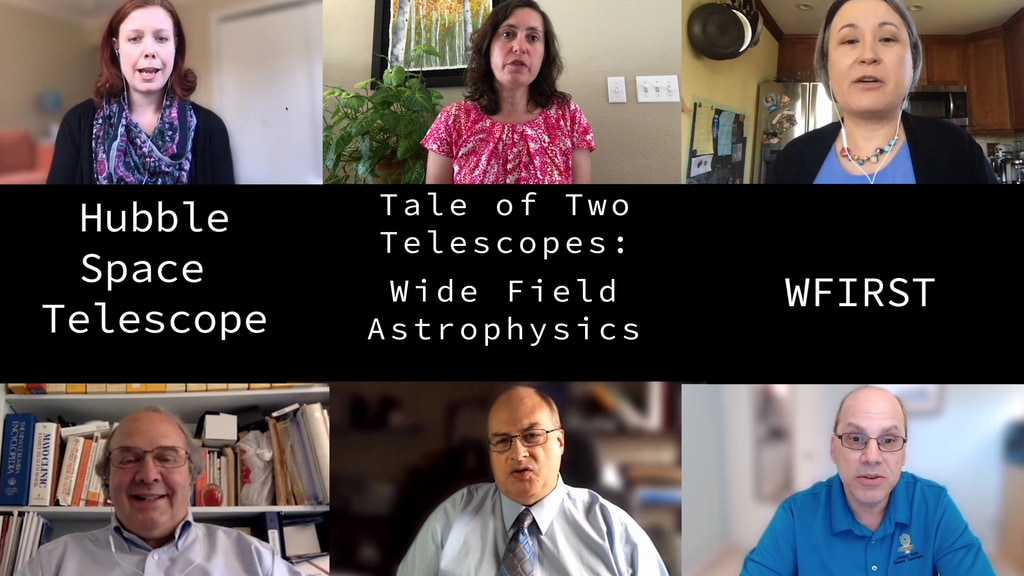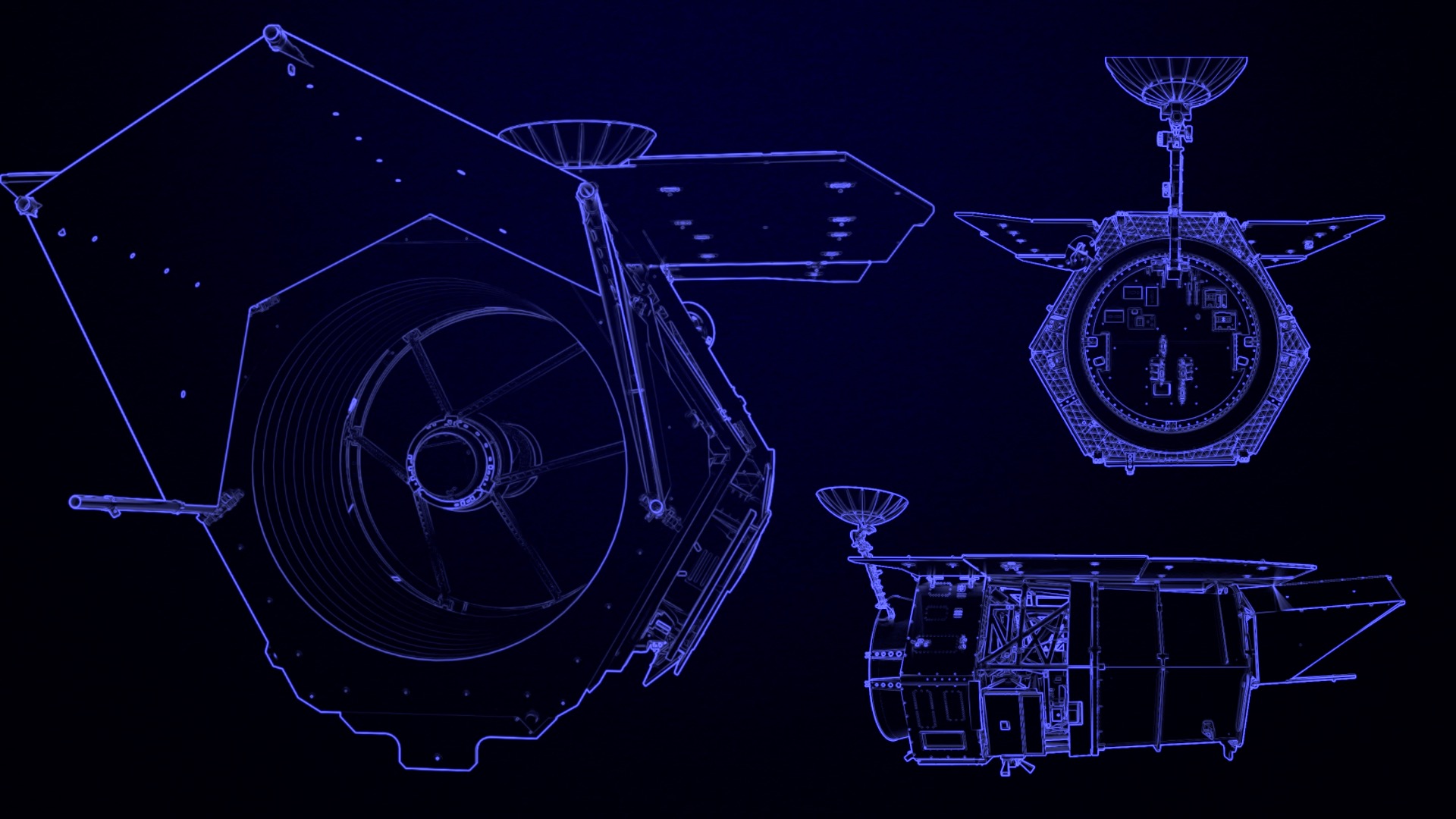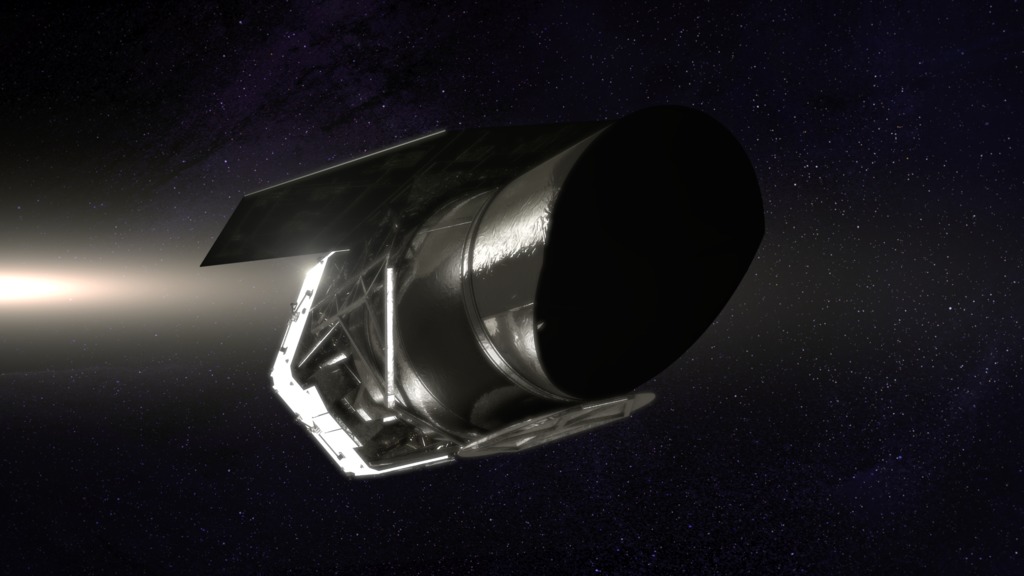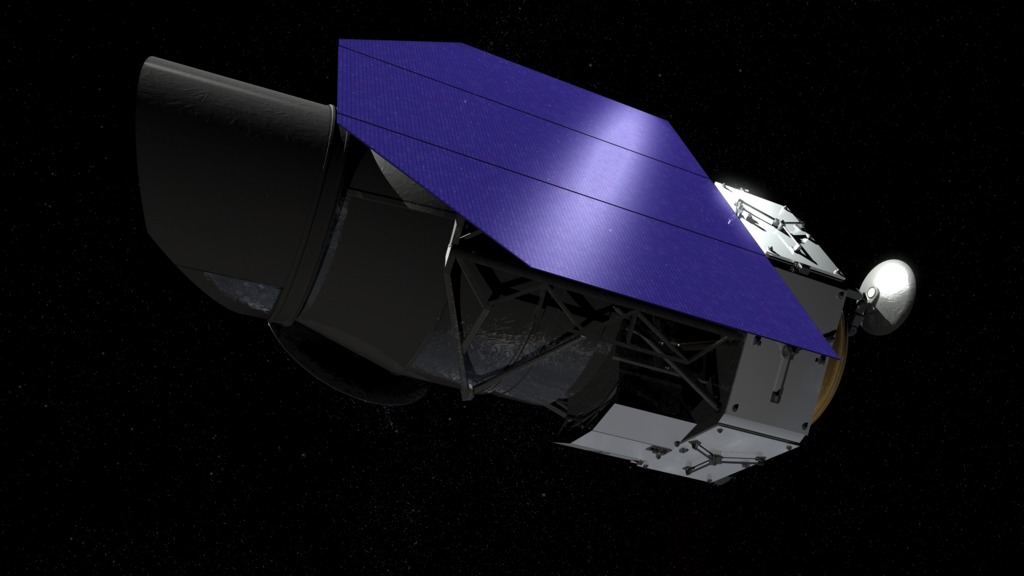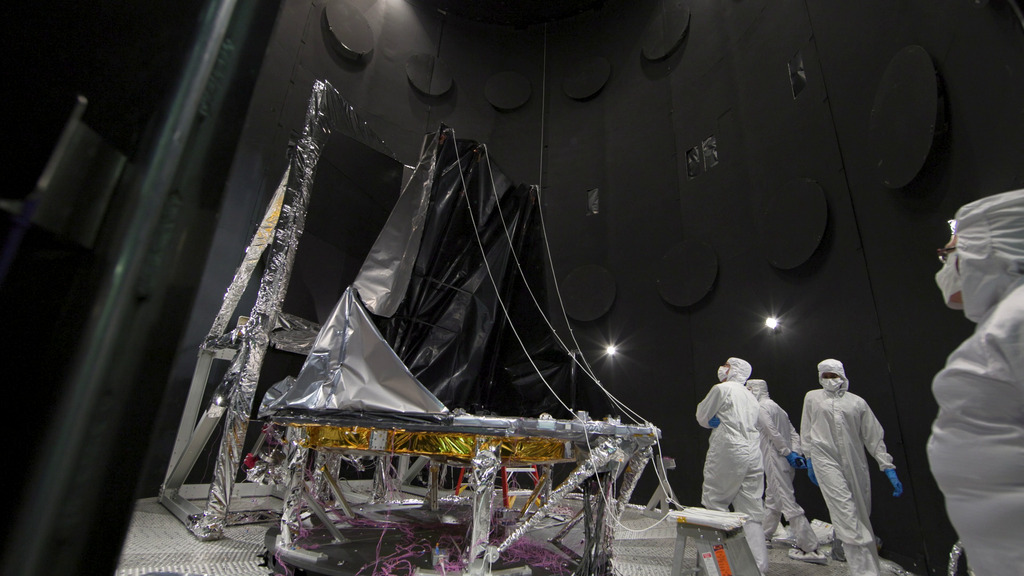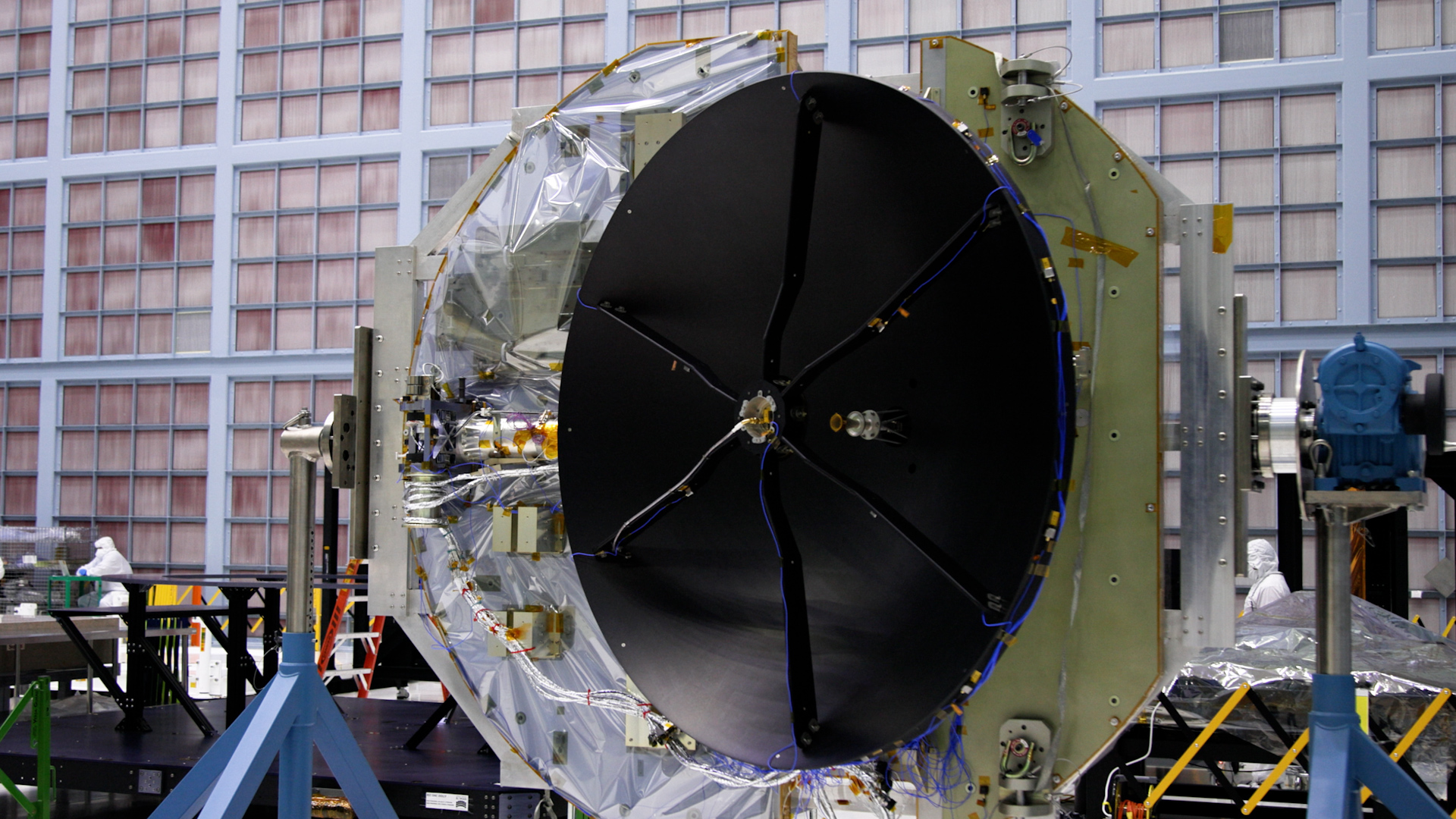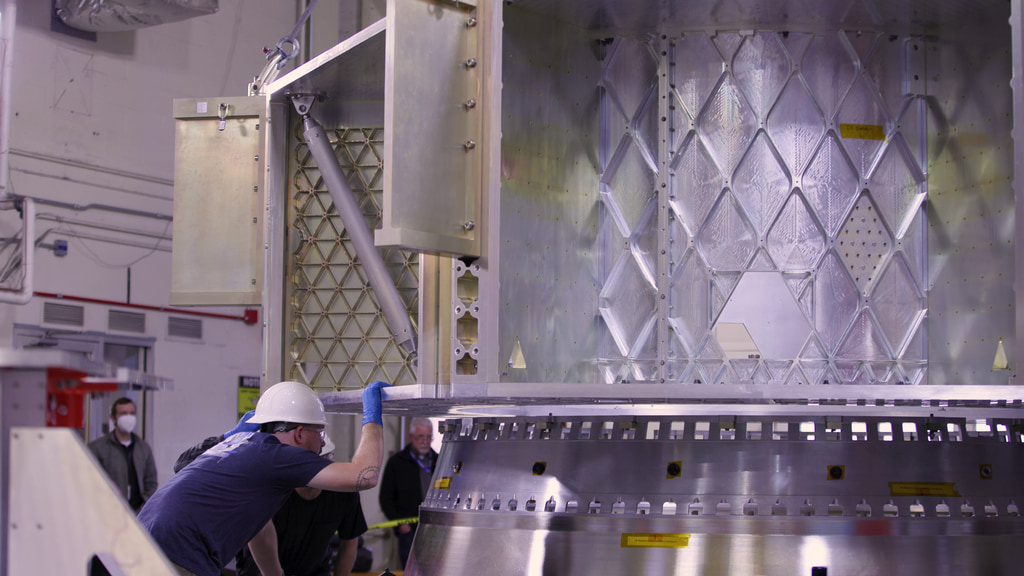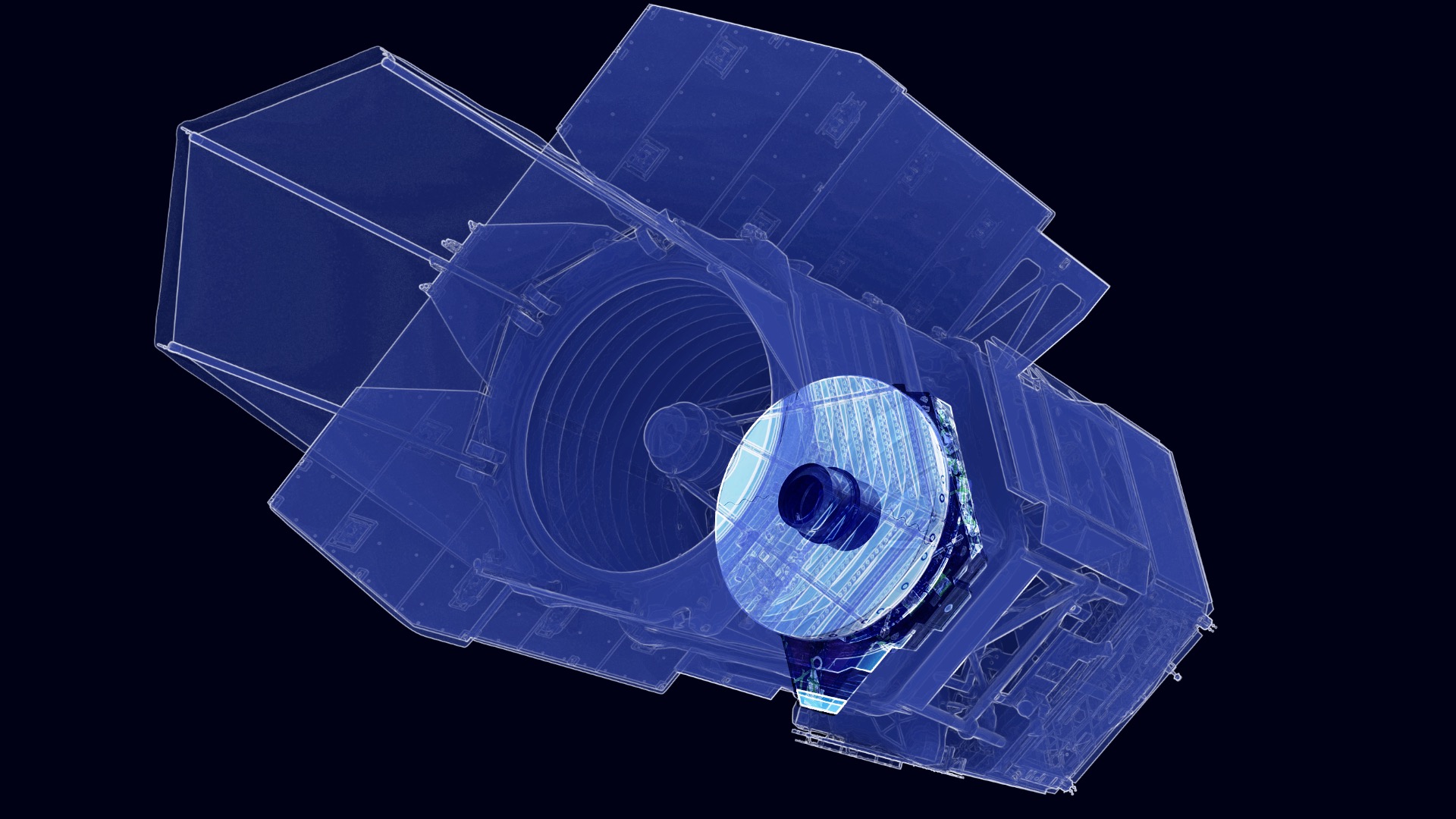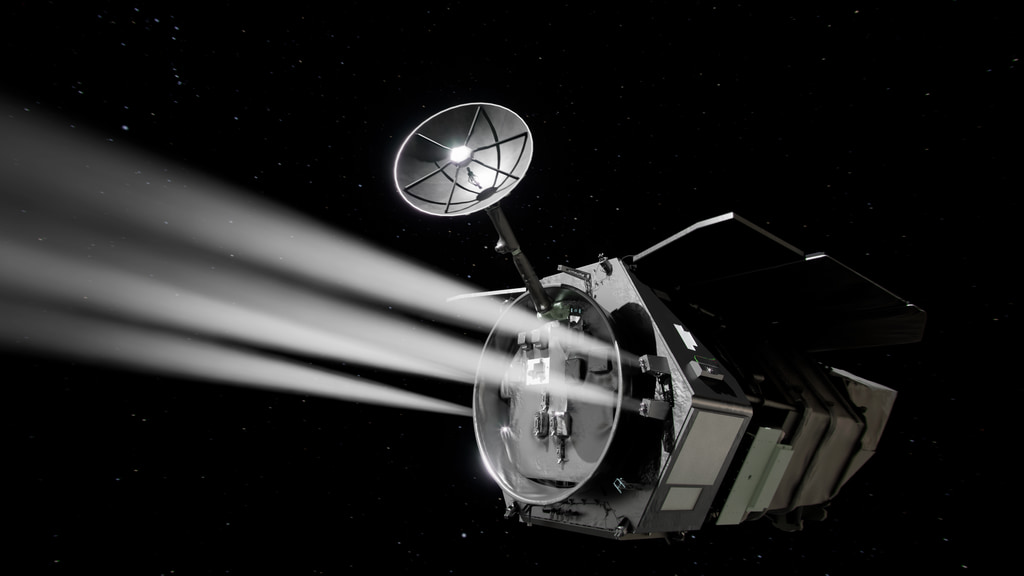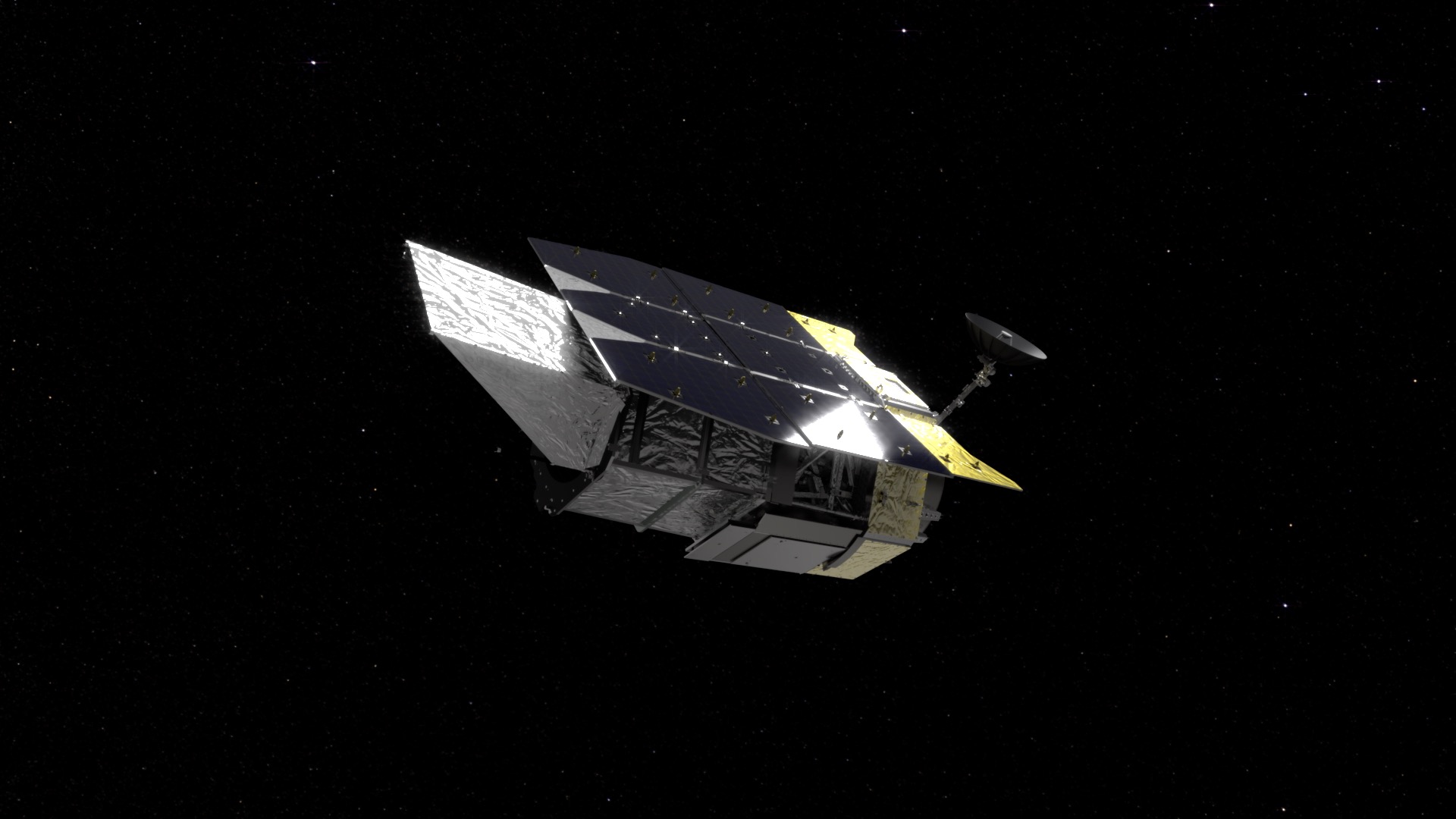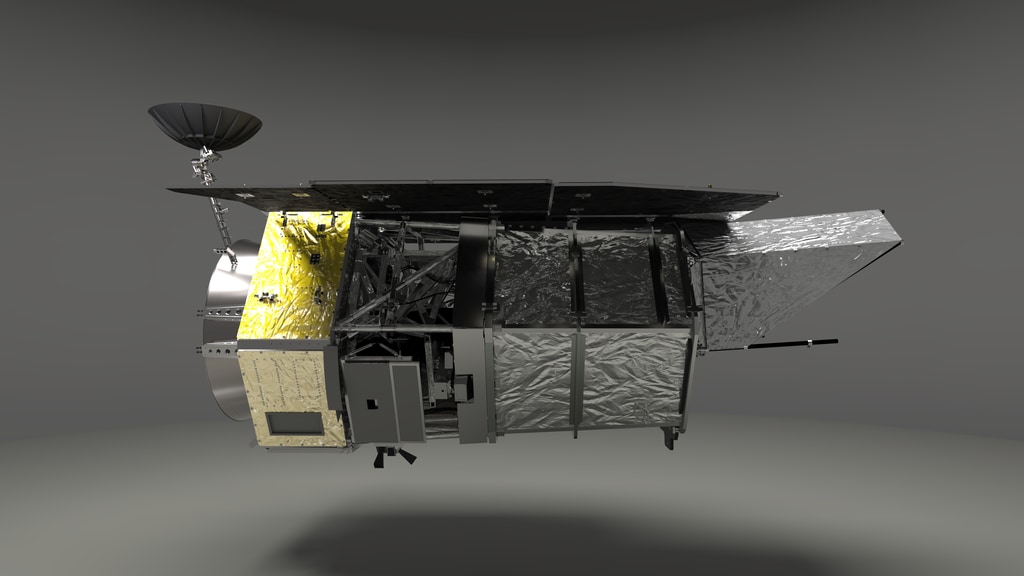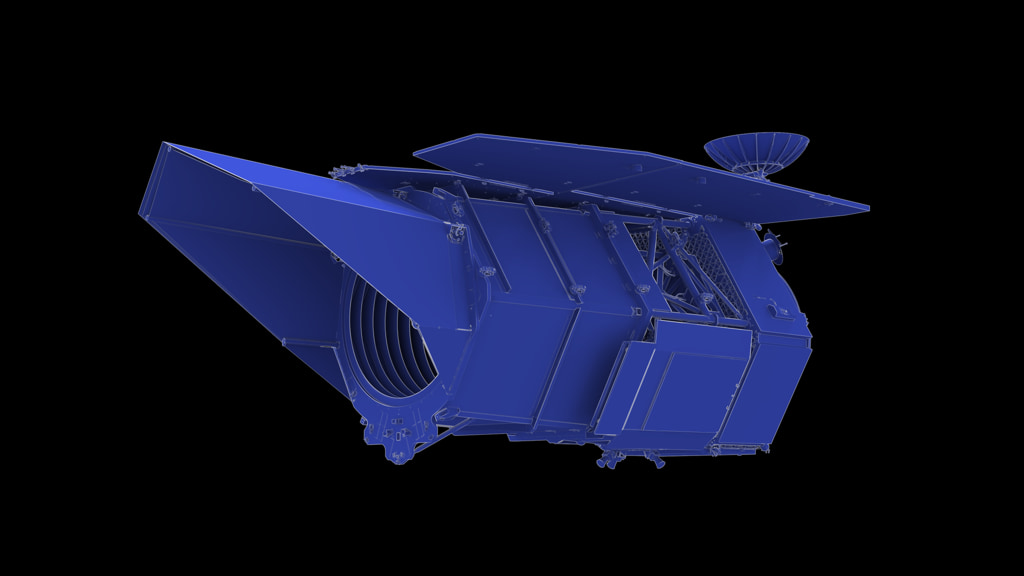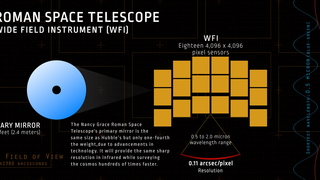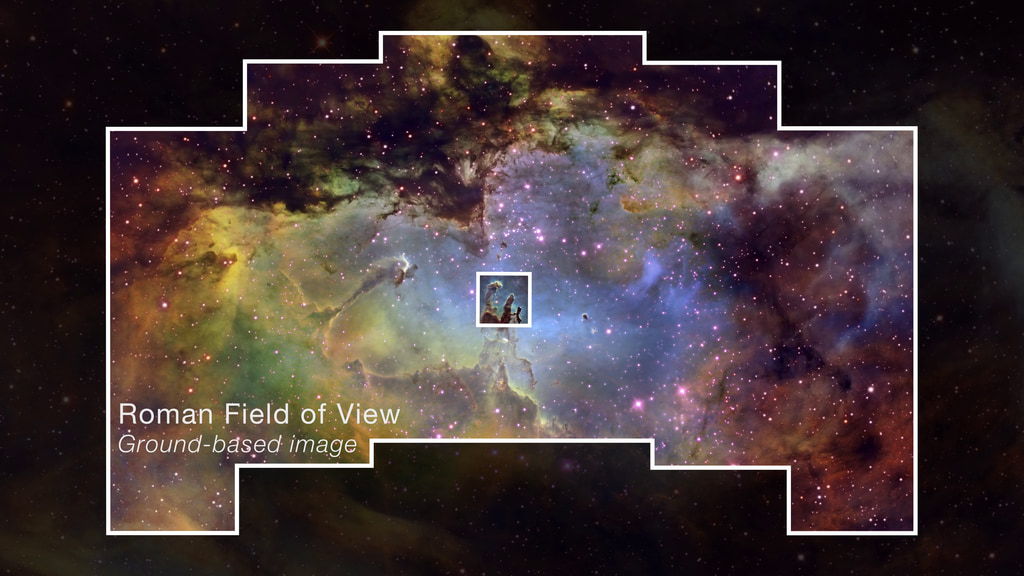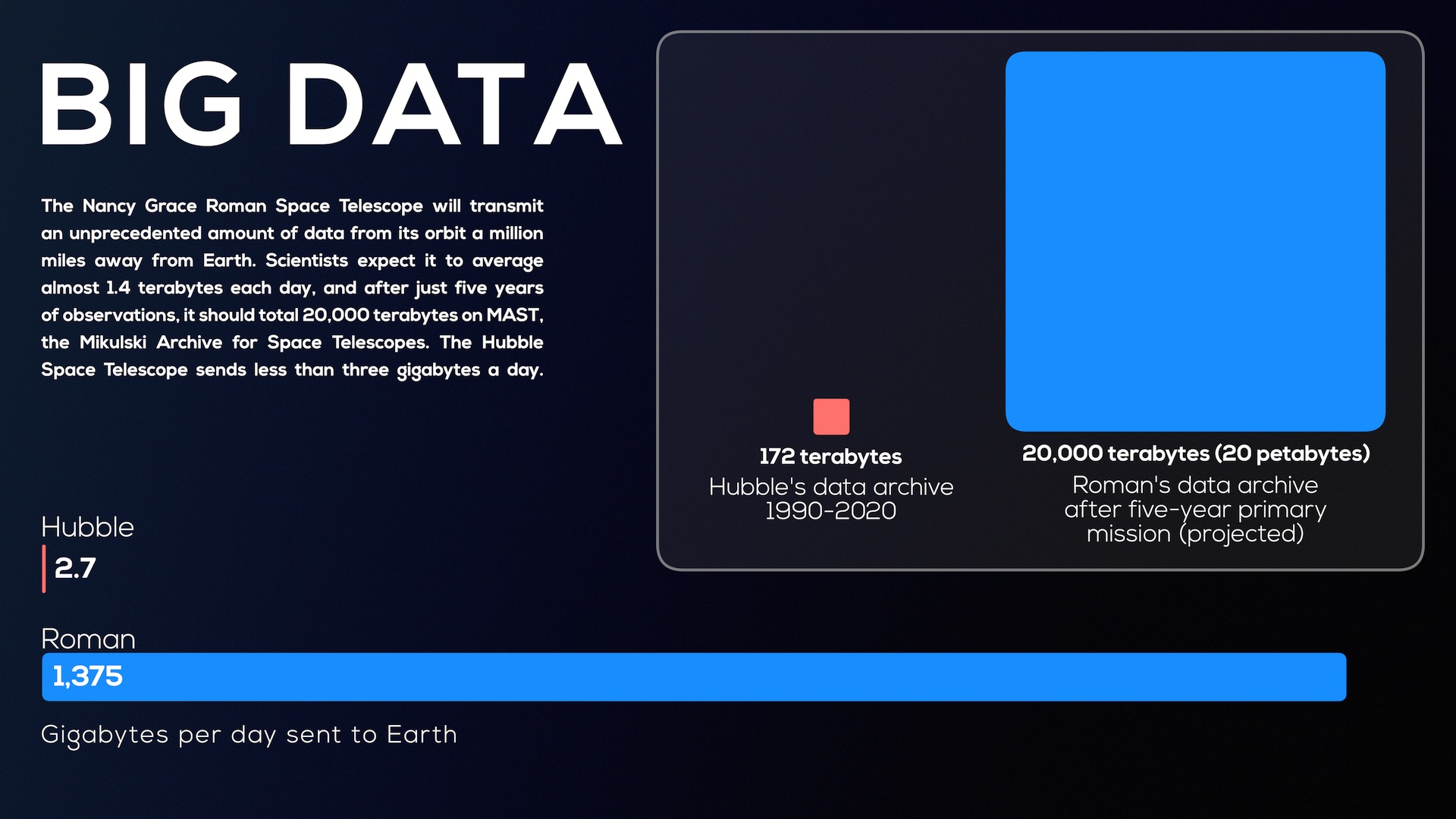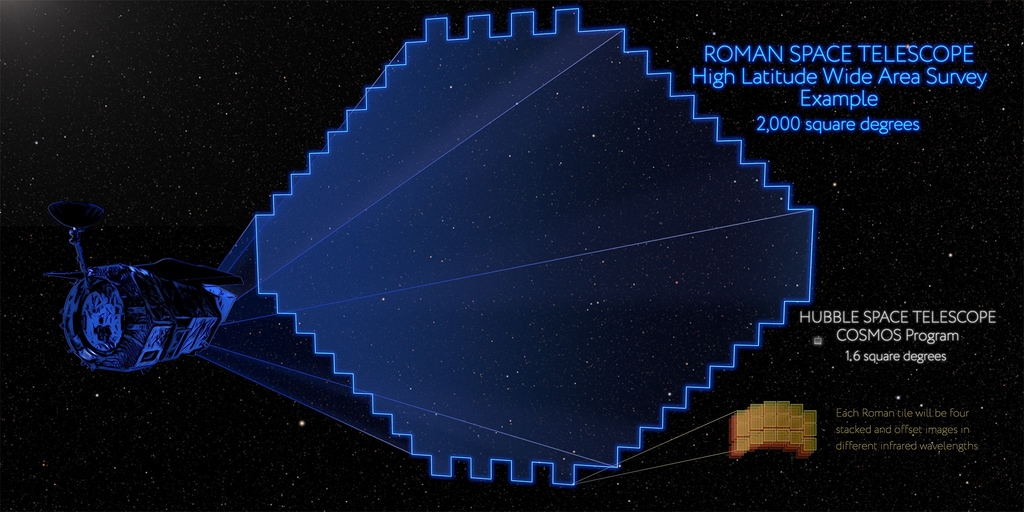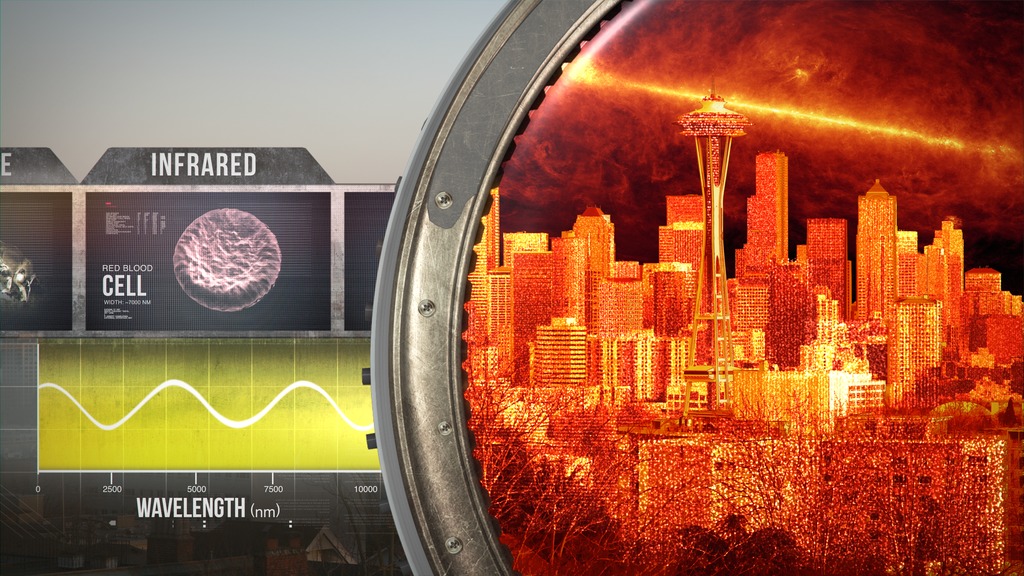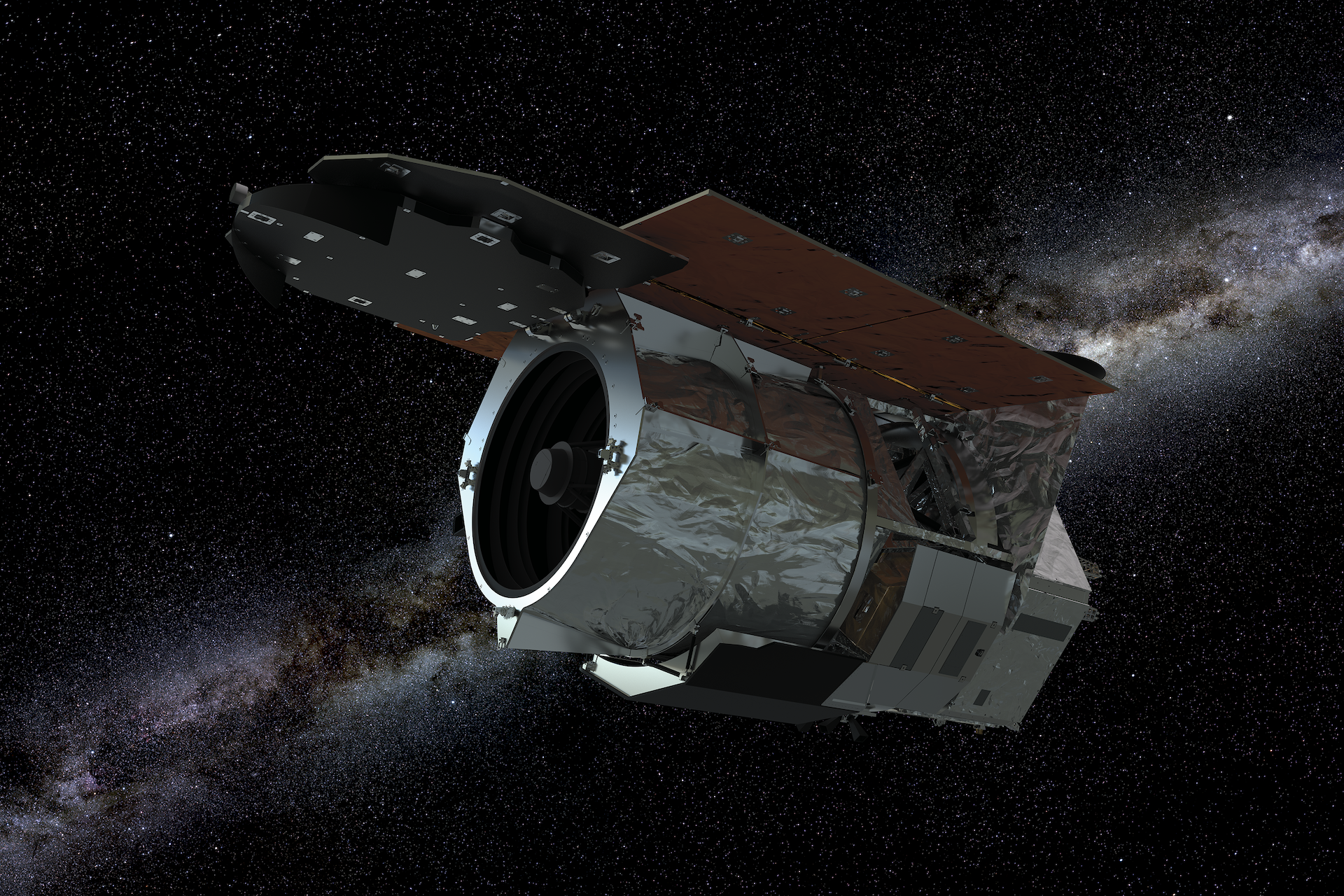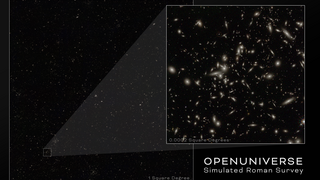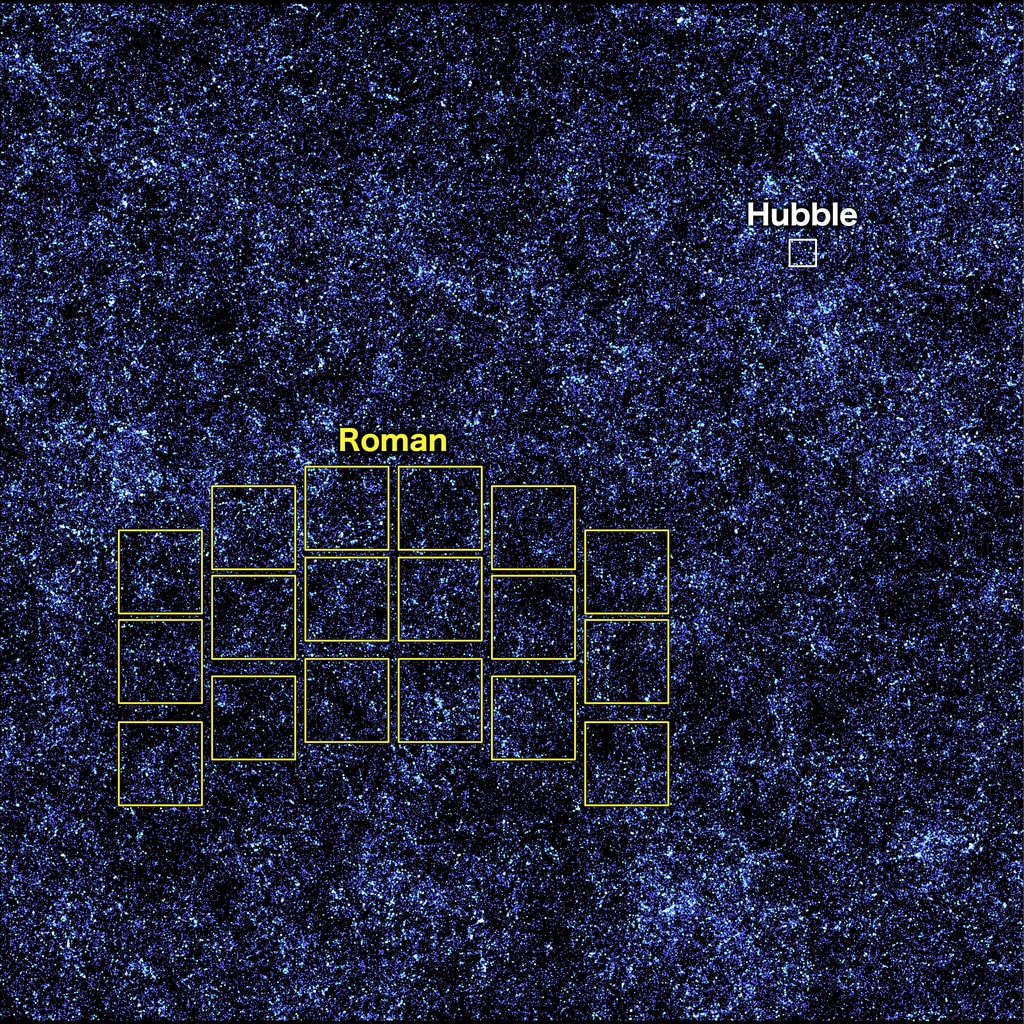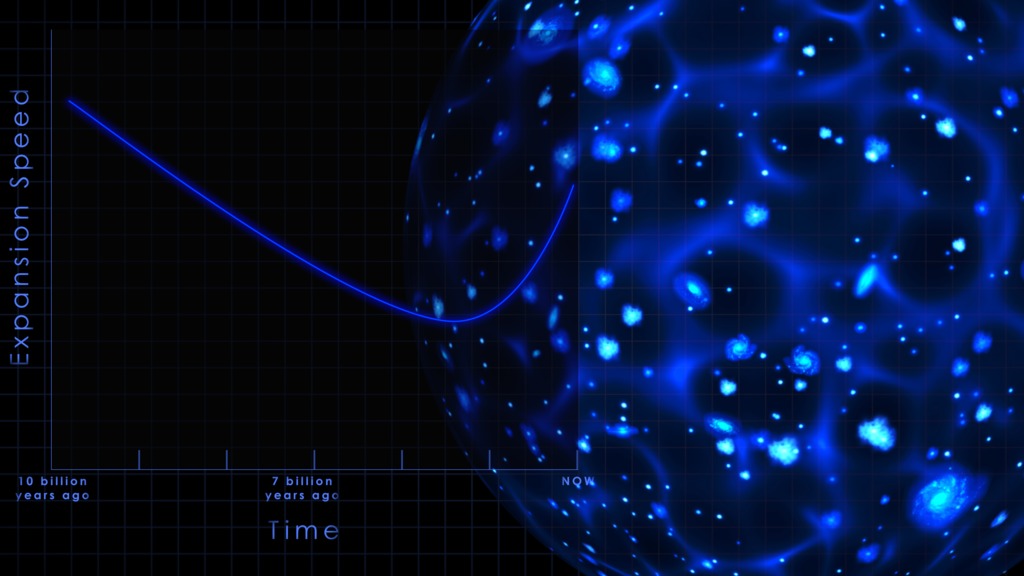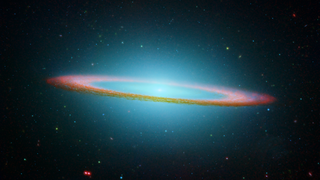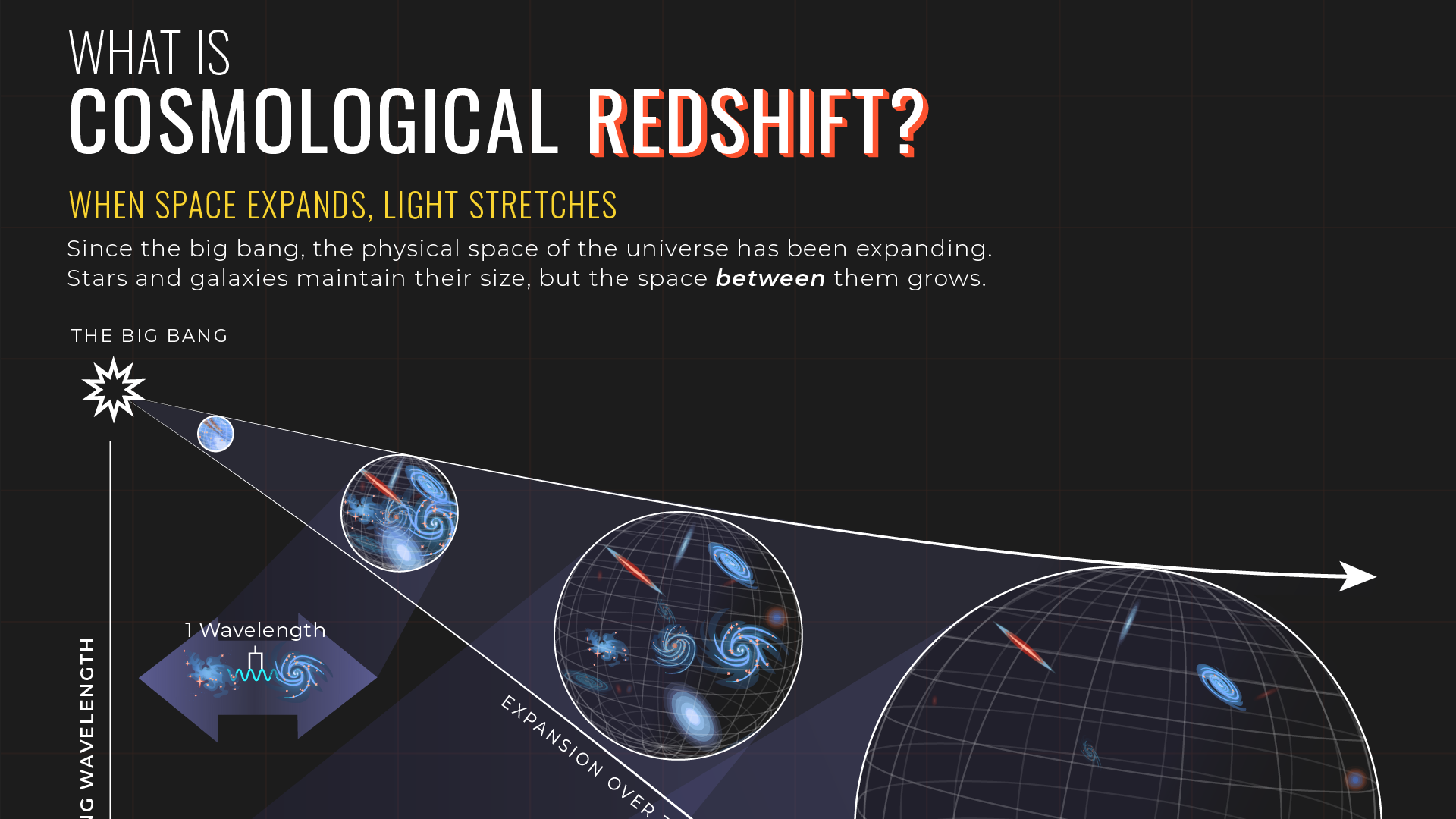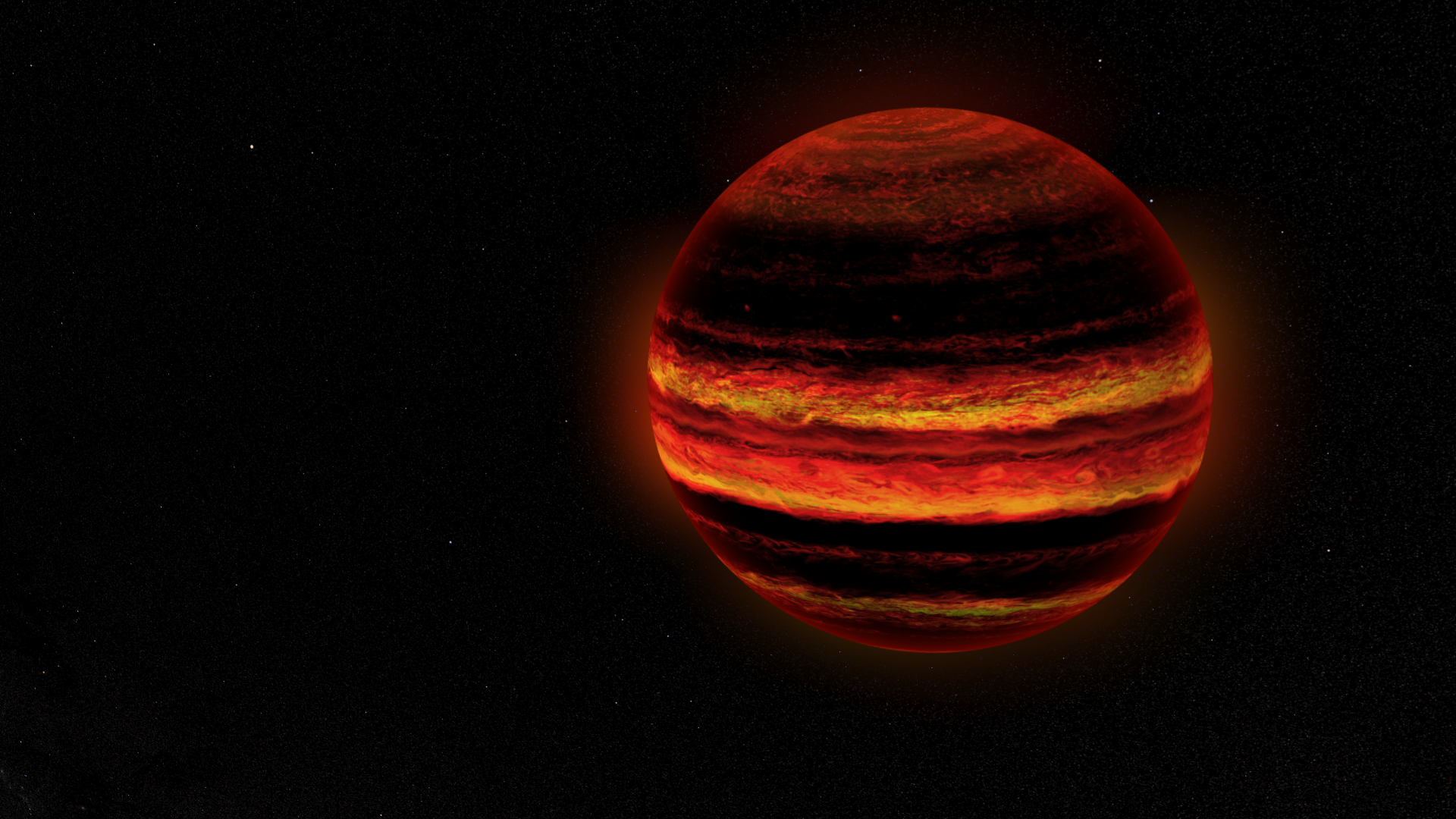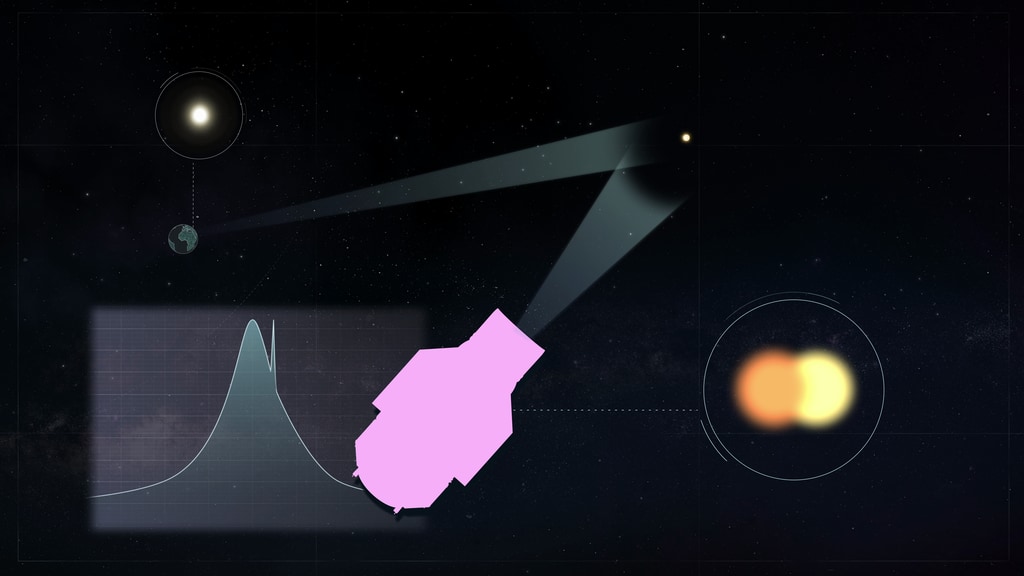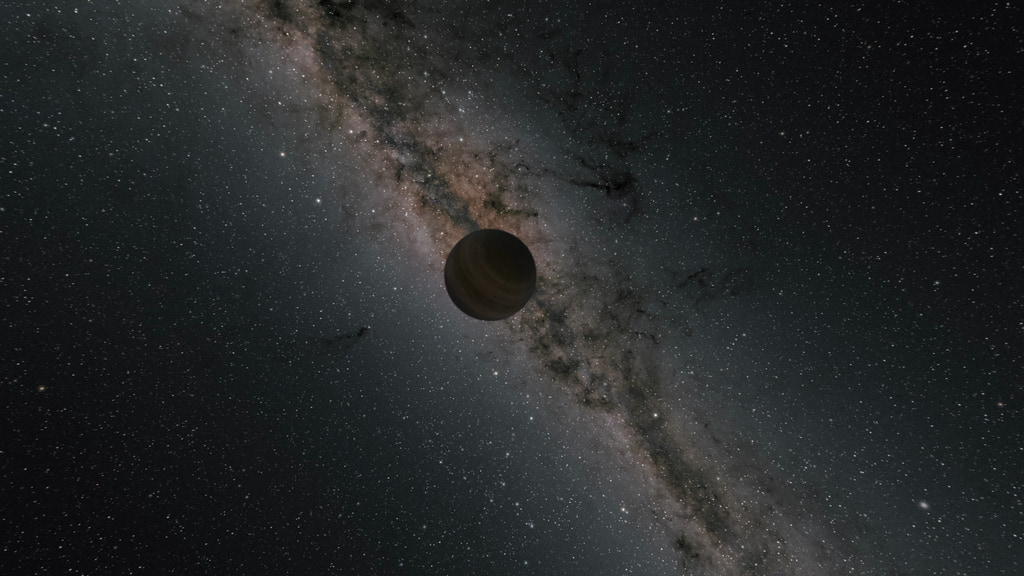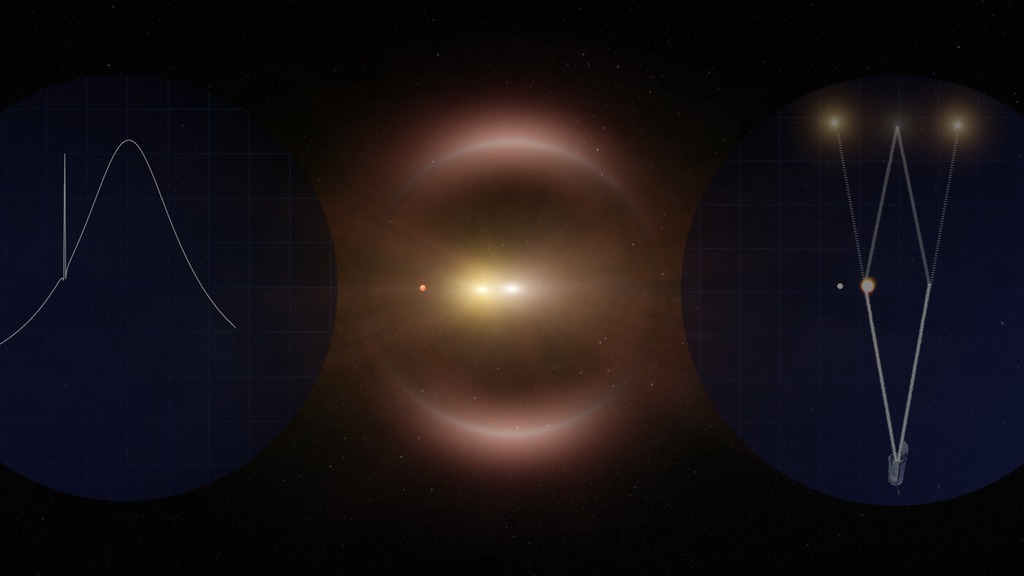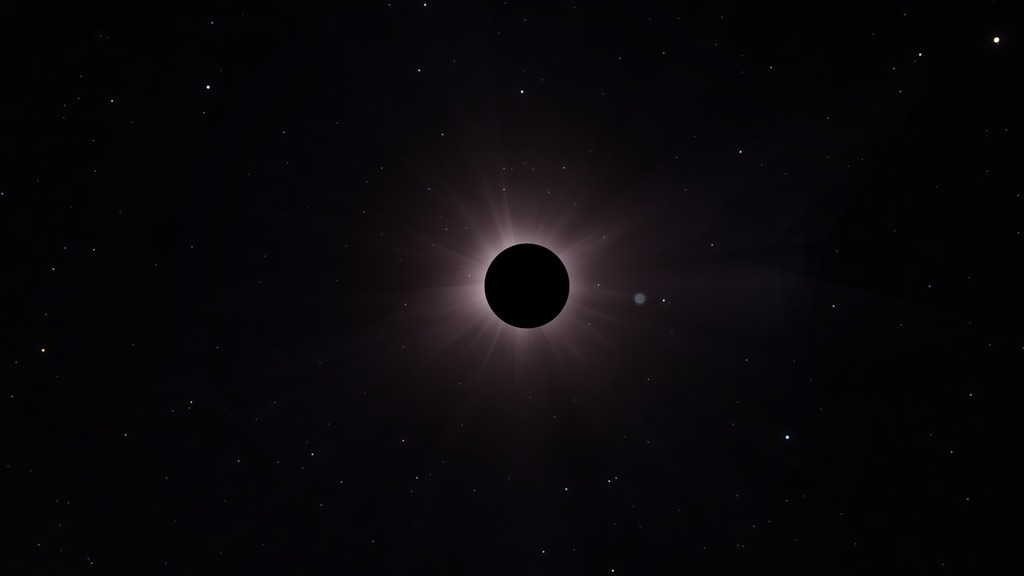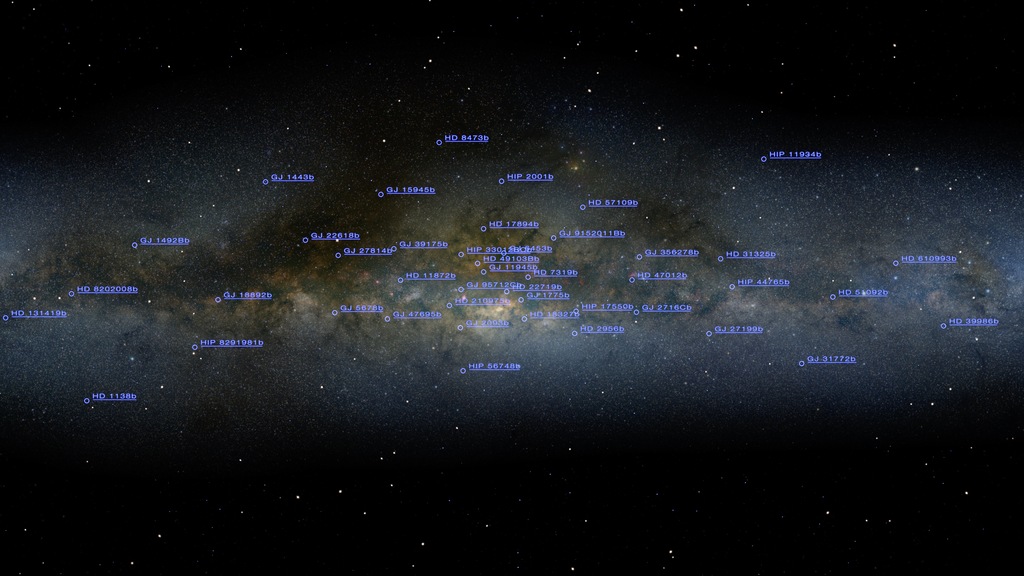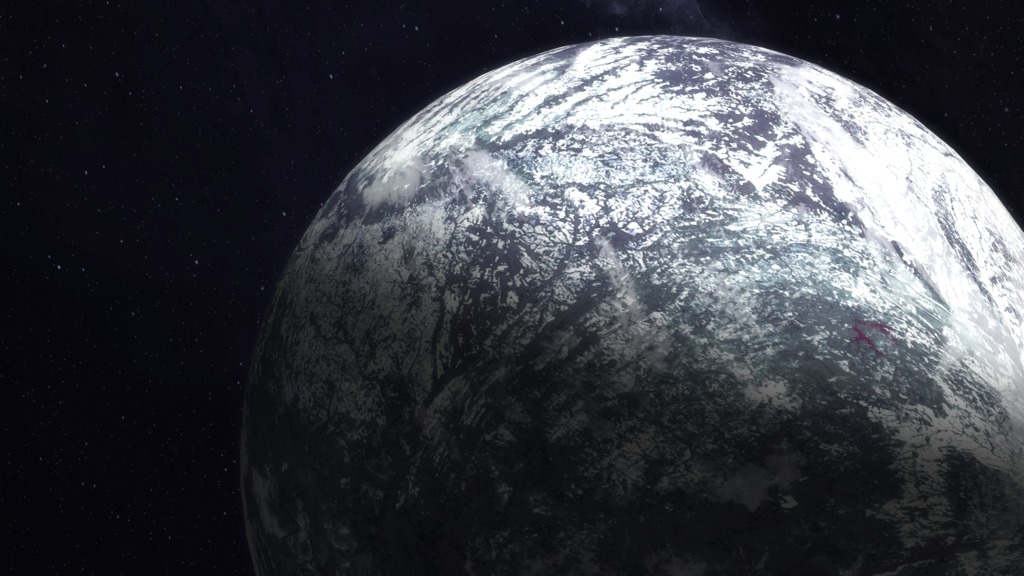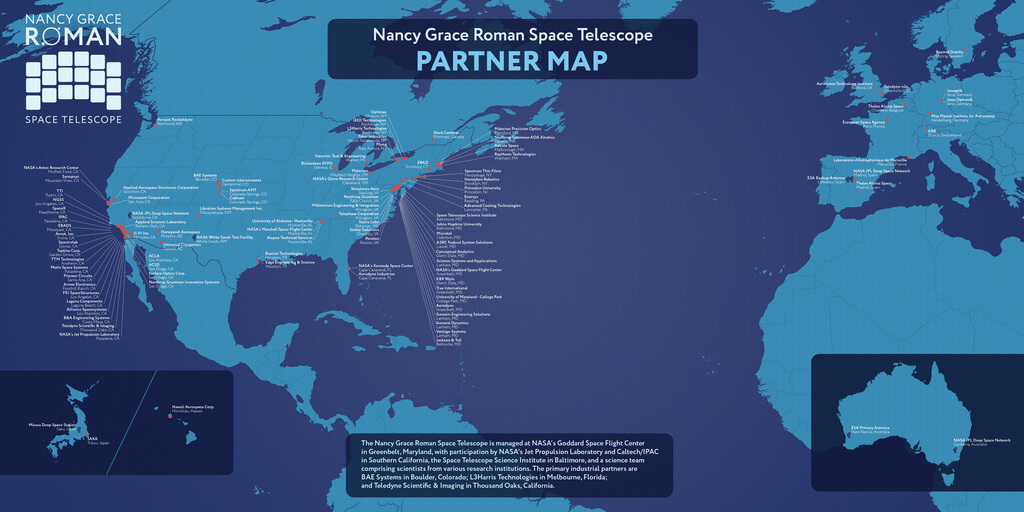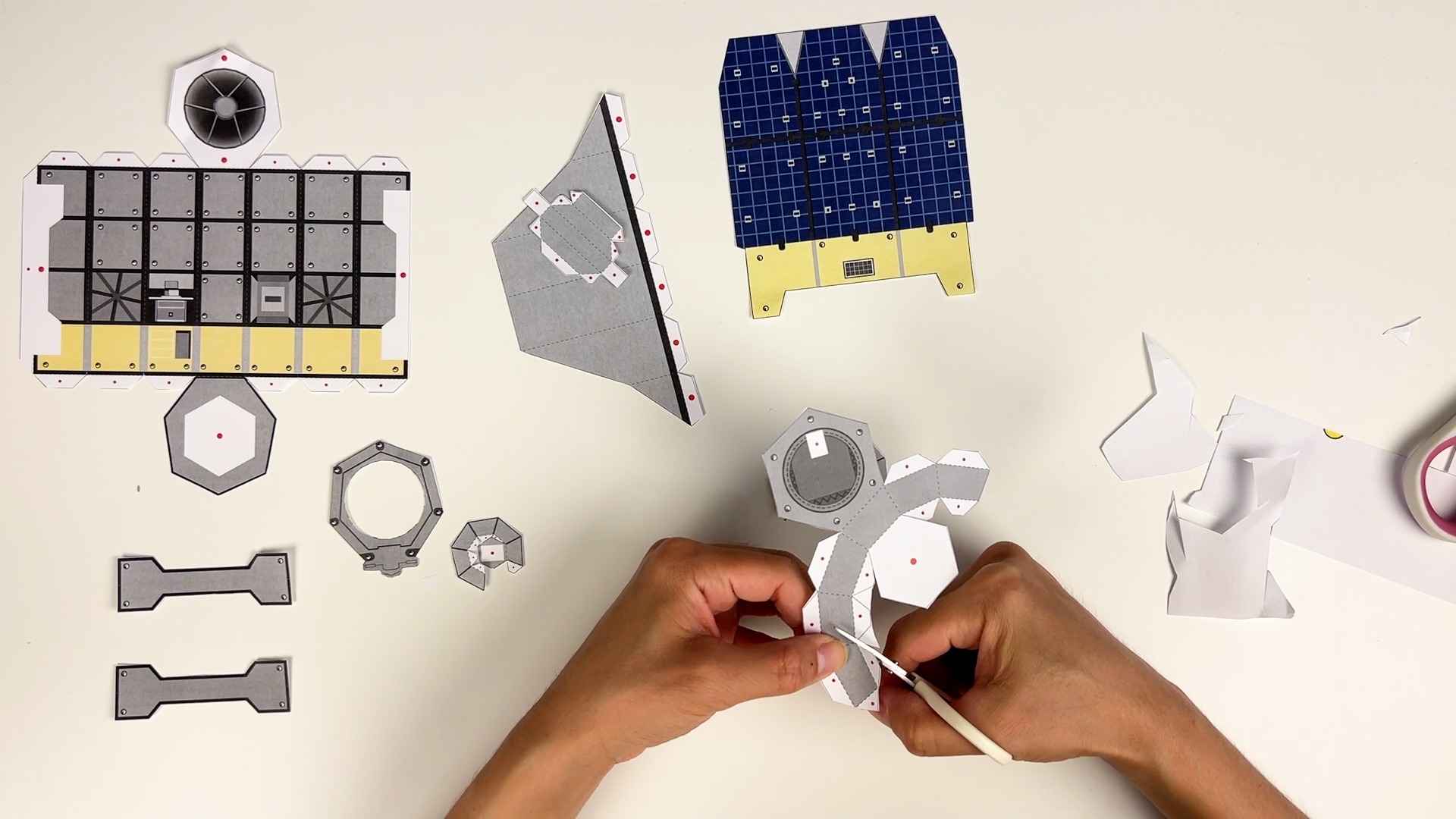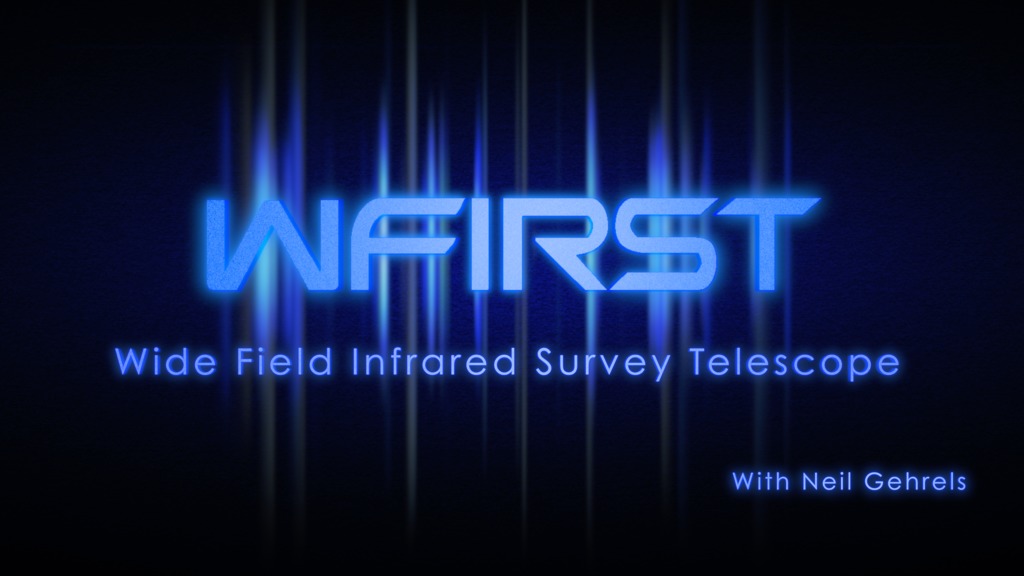Nancy Grace Roman Space Telescope
Overview
Formerly known as WFIRST, the Wide Field Infrared Survey Telescope, the Roman Space Telescope is a NASA observatory designed to perform wide field imaging and surveys of the near infrared (NIR) sky. The current design of the mission makes use of an existing 2.4m telescope, which is the same size as the Hubble Space Telescope. The Roman Space Telescope is the top-ranked large space mission in the New Worlds, New Horizon Decadal Survey of Astronomy and Astrophysics. The Wide Field Instrument will provide a field of view of the sky that is 100 times larger than images provided by HST. The coronagraph will enable astronomers to detect and measure properties of planets in other solar systems.
Produced Videos
Full-form videos with narration and interviews
- Produced Video
- Produced Video
- Produced Video
- Produced Video
- Produced Video
- Produced Video
- Produced Video
- Produced Video
- Produced Video
- Produced Video
- Produced Video
- Produced Video
- Produced Video
- Produced Video
- Produced Video
- Produced Video
- Produced Video
- Produced Video
Spacecraft Hardware
- Produced Video
- Produced Video
- Produced Video
- Produced Video
- Produced Video
- Produced Video
- Produced Video
- Produced Video
- Produced Video
- Produced Video
- Produced Video
- Produced Video
- Produced Video
Spacecraft Animations
Information about the Roman Space Telescope spacecraft, its instruments, and technical details about the mission.
- Produced Video
- Produced Video
- Produced Video
- Produced Video
- Produced Video
- Animation
- Produced Video
- Produced Video
- Produced Video
- Produced Video
- Produced Video
- Produced Video
- Animation
- Produced Video
- Animation
Universe
The Roman Space Telescope will study large-scale features of the universe to learn more about dark energy and dark matter.
- Produced Video
- Infographic
- Produced Video
- Produced Video
- Produced Video
- Animation
- Produced Video
- Animation
- Produced Video
- Produced Video
- Produced Video
- Produced Video
- Produced Video
- Infographic
Exoplanets
The Roman Space Telescope will advance our understanding of exoplanets, provide a comprehensive view of the formation, evolution, and physical properties of planetary systems, and lay the foundation for, the discovery and characterization of a habitable Earth-like planet orbiting a nearby star.
- Produced Video
- Produced Video
- Animation
- Produced Video
- Produced Video
- Animation
- Produced Video
- Produced Video
Still Images
- Produced Video
- Infographic
- Produced Video
- Produced Video
- Produced Video
- Infographic
- Produced Video
- Produced Video
- Produced Video
- Produced Video
- Produced Video
- Produced Video
- Produced Video
Social
- Produced Video
- Produced Video
- Produced Video
- Produced Video
- Produced Video
- Produced Video
- Produced Video
- Produced Video
- Produced Video
- Produced Video
- Produced Video
- Produced Video
- Produced Video
- Produced Video
Presentation Resources
- Produced Video
- Produced Video
- Produced Video
- Produced Video
- Produced Video
- Produced Video
- Produced Video
- Produced Video
- Produced Video
- Produced Video
- Produced Video
- Produced Video

![In September 2024, the Nancy Grace Roman Space Telescope passed a key milestone and was approved for the next stage of construction. Work on the main systems that will make up the final spacecraft is finishing, and the team at NASA’s Goddard Space Flight Center is ready to begin integration, the process of connecting them together. This video celebrates the effort to reach the final stages of assembly.Music: “The Call,” Torsti Juhani Spoof [BMI] Universal Production MusicWatch this video on the NASA Goddard YouTube channel.Complete transcript available.](/vis/a010000/a014600/a014693/YTframe_Building_Roman_Main2.jpg)
